MercoPress. South Atlantic News Agency
Tag: IBGE
-
Wednesday, June 6th 2018 - 08:38 UTC
Brazil industrial production returned to positive growth during April
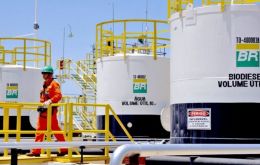
Brazilian industrial production increased 0.8% in April, marking a return to positive growth after dropping by 0.1% in March, the government announced on Tuesday. According to the report by Brazil's statistics bureau, IBGE, the industrial sector has grown 4.5% so far in 2018.
-
Saturday, May 5th 2018 - 09:05 UTC
Brazilian recovery stalls as industrial output falls 0.1% in March
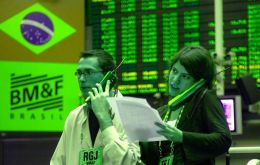
Industrial output in Brazil contracted unexpectedly in March, the latest in a string of weak data suggesting a recovery in Latin America's largest economy hit a bump in the first quarter. Production fell 0.1% from February, government statistics agency IBGE announced.
-
Thursday, November 1st 2012 - 16:29 UTC
September industrial production down 1% in Brazil; 12.4% in nine months
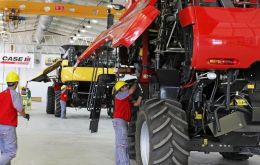
Industrial production in Brazil contracted more than expected in September. According to a release from the government stats office IBGE output from Brazilian factories and mines shrank 1% in September from August on a seasonally adjusted basis.
-
Thursday, September 6th 2012 - 04:04 UTC
Brazil August inflation relatively stable, but food prices could change the picture

Brazil's annual inflation remained relatively stable in August, and was broadly in line with economists' forecast, data released by statistical office IBGE. The consumer price index increased 5.24% on an annual basis in August, just ahead of the 5.2% recorded in July.
-
Wednesday, September 5th 2012 - 00:52 UTC
Brazilian industrial production up 0.3% in July, but still unconvincing
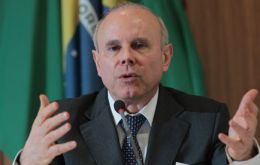
Brazilian industrial production rose a stronger-than-expected 0.3% in July from June, government statistics agency IBGE said on Tuesday. July was the second positive number following three straight months of declining output.
-
Friday, February 10th 2012 - 04:15 UTC
Brazil anticipates a 3% contraction in the 2011/12 crop because of severe drought

The 2012 Brazilian grains and oilseed is expected to be below the 2011 record because of the intense drought in the months of December and January, particularly to the south of the country where soybeans and rice suffered most reported the Geography and Statistics Institute, IBGE.
-
Wednesday, February 1st 2012 - 06:24 UTC
Brazil’s December industrial production brings hope after a dismal 0.3% for 2011

Rising output at Brazil's factories and mines in December, following a dismal 2011 performance, should help activity in 2012 as falling interest rates and rising investment help sustain growth in Latin America's largest economy
-
Saturday, September 3rd 2011 - 00:46 UTC
Brazilian economy slowing down: growth drops to an annualized 3.1%

Brazil's economy expanded at a softer pace in the second quarter as a strong currency fueled a flood of cheap imports and industrial activity had its worst performance since the third quarter of 2009.
-
Tuesday, May 3rd 2011 - 17:03 UTC
Brazil’s industrial output expands for third consecutive month
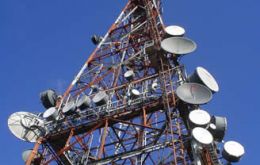
Brazil’s industrial output increased a seasonally adjusted 0.5% from February although it fell 2.1% compared with March 2010, the Brazilian Census Bureau, or IBGE, said Tuesday.
-
Saturday, April 30th 2011 - 10:07 UTC
Brazilian has 190.7 million population, and 14.6 million illiterates
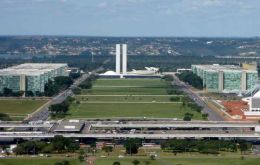
Brazil’s population reached 190.7 million according to primary data collected from the 2010 demographic census and released Friday by the Brazilian Geography and Statistics Institute, IBGE. The census also showed that almost 10% of the population is illiterate.
